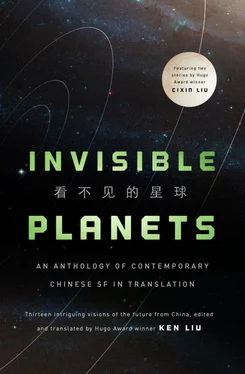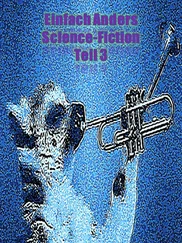They knew just how to motivate us; this was just like final exams and posting scores.
Black Cannon got the most commendations. His kill figure was probably already in the four digits, far ahead of anyone else. My own record was below average, barely passing, not unlike in college. Pea was at the very bottom. If I didn’t help him out now and then by handing him a few tails, he would have zero kills.
The Drill Instructor pulled me aside. “Listen, you’re Pea’s friend. Straighten him out.”
I found Pea behind a pile of leaves. I made a lot of noise to give him a chance to put away the pictures of his parents and to wipe away the tears and mucus on his face.
“Homesick?”
He nodded, hiding his swollen eyes from me.
I pulled out a photograph from my inner pocket. “I think about home, too.”
He put on his glasses and examined the picture. “Your parents are so young.”
“This was taken years ago.” I looked at my father’s suit and my mother’s dress, still new looking. “I guess I’m not much of a son. All these years, all I’ve done is make them worry. I never even helped them take a new picture.” My nose felt itchy.
“You know about macaque monkeys?” Pea asked. It was impossible to follow Pea’s thoughts. His mind was like a wire mesh, and ideas traveled across it by jumping. “Scientists discovered mirror neurons in their brains, too. So like humans, they can understand how other monkeys feel and think. They have a mirror in their minds for empathy. You understand?”
I didn’t.
“Empathy. You can always say something that gets me right where I need it. So I think you must have an excess of mirror neurons.”
I punched him lightly. “You calling me a monkey?”
He didn’t laugh. “I want to go home.”
“Don’t be stupid. The Drill Instructor would never give permission. And it will look terrible in your file. How will you ever find a job?”
“I just can’t do it.” Pea stared at me, speaking slowly. “I think the rats didn’t do anything wrong. They’re just like us, doing the best they can in this world. But our role is to chase them, and their role is to be chased. If we swapped roles, it would make no difference.”
I couldn’t think of anything to say, so I just put my hand on his shoulder.
On the way back to camp, I bumped into Black Cannon. He smirked at me. “Playing therapist for that sissy?”
I gave him the finger.
“Be careful that you don’t drown along with him,” he called out.
I tried to use my mirror neurons to understand what Black Cannon was thinking and feeling. I failed.
* * *
The Drill Instructor stares at the map and the detector, looking thoughtful.
According to the detector, a large pack of rats is moving toward the edge of our district. At the rate we’re marching, we should be able to catch them in twelve hours. If we can kill them all, we will have completed our quota. Yes, we’ll be honorably discharged. We’ll have jobs. We’ll go home for New Year’s.
But there’s a problem. Regulations say that Rodent-Control Force units may not cross district borders for kills. The idea is to prevent units from overly aggressive competition, stealing kills from one another.
The Drill Instructor turns to Black Cannon. “You think we can contain the battle so that the whole operation is within our district?”
Black Cannon nods. “I guarantee it. If we end up crossing district lines, the rest of you can have all my tails.”
We laugh.
“Fine. Let’s get ready to leave at eighteen hundred hours.”
I find a landline public phone at a convenience store. First I call my mom. When she hears that I might be coming home soon, she’s so happy she can’t speak. I hang up after a few more sentences because I’m afraid she’ll cry. Then I dial another number before I can stop myself.
Li Xiaoxia.
She has no idea who I am. Undaunted, I recount our entire history until she remembers.
She’s now working at a foreign company’s Chinese branch: nine to five, plenty of money. Next year she might go overseas to take some classes at company expense. She seems distracted.
“Have you gotten my postcards?”
“Yeah, sure.” She hesitates. “Well, the first few. Then I moved.”
“I’m about to be discharged,” I say.
“Ah, good. Good. Stay in touch.”
I refuse to give up. “Do you remember how when we parted, you told me to be careful of the rats? You said you had seen them. What did you see?”
A long and awkward silence. I hold my breath until I’m about to faint. “I don’t remember,” she says. “Nothing important.”
I regret the money I wasted on that call.
Numbly I stare at the scrolling ticker on the bottom of the static-filled TV screen in the convenience store: “The rodent-control effort is progressing well.” “The Western Alliance has agreed to a new round of trade talks concerning the escalating tension with our country.” “Employment opportunities for new college graduates are trending up.”
Well, even though the rats have now bypassed the limits on their reproductive rates, our quota hasn’t been adjusted in response. It makes no sense, but I don’t care. It looks like we’ll have jobs, and the export numbers will go up again. It doesn’t seem like what we’re doing here matters.
It’s just like what Xiaoxia said: “They say that…” “Others say that…” It’s just rumors and guesses. Who knows what really happens behind closed doors?
No single factor means anything. Everything has to be contextualized. There are too many hidden relationships, too many disguised opportunities for profit, too many competing concerns. This is the most complicated chess game in the world, the Great Game.
But all I can see is my broken heart.
* * *
For the last few days, Pea had been going to the bathroom unusually frequently.
I followed him in secret. I saw him taking out a small metal can with holes punched in the lid. He carefully opened it a crack, threw some crackers inside, and murmured quietly into the can.
I jumped out and held out my hand.
“It was really cute,” he said “Look at the eyes!” He tried to appeal to my mirror neurons.
“This is against regulations!”
“Just let me keep it for a few days,” he begged. “I’ll let it go.” His eyes looked like the baby rat’s, so bright.
Someone as nervous and careless as Pea was no good at keeping secrets. When the Drill Instructor and Black Cannon stood in front of me, I knew the game was up.
“You are sheltering prisoners of war!” Black Cannon said. I wanted to laugh, and Pea was already laughing.
“Stop,” the Drill Instructor said. We stood at attention. “If you can give me a reasonable explanation, I’ll deal with you reasonably.”
I figured that I had nothing to lose, so I came up with an “explanation” on the fly. Black Cannon was so furious when he heard it I thought his nose was going to become permanently twisted.
Pea and I worked together the whole afternoon to dig a hole about two meters deep into the side of a hill. We lined it with a greased tarp. Pea didn’t like my plan, but I told him it was the only way we could escape punishment.
“It’s really smart,” Pea said. “It can even imitate my gestures.” He gave a demonstration. Indeed, the little rat was a regular mimic. I tried to get it to imitate me, but it refused.
“Great,” I said. “Its IQ is approaching yours.”
“I try to see it as just a well-engineered product,” Pea said. “A bundle of modified DNA. But emotionally I can’t accept that.”
We hid downwind from the hole. Pea held a string in his hand. The other end of the string was tied to the leg of the baby rat at the bottom of the hole. I had to keep on reminding Pea to pull the rope once in a while to make the rat cry out piteously. His hands shook. He hated doing it, but I made him. Our futures were at stake here.
Читать дальше












